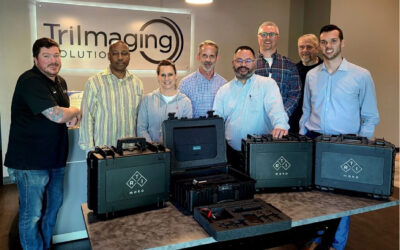Acertara has announced that its research and development team has partnered with Johns Hopkins University for a study through a research grant from the Focused Ultrasound Foundation.
The study will determine if focused ultrasound can be used to increase drug delivery to the bladder wall.
Nicholas Ellens, who oversees the acoustics power testing lab at Acertara, was instrumental in securing the research grant.
“If effective, this technology could be used to treat a variety of bladder diseases, including bladder cancer, with minimal side effects to the patient,” Ellens said. “Bladder cancer is the fourth most common cancer among men and this technology has the potential to improve the survival rate of many thousands of people throughout the world.”
This early stage research is being conducted on rats by the research team at Johns Hopkins and Acertara, but the team is hopeful to translate the technology to humans quickly. Updates will be published on the Focused Ultrasound Foundation website throughout the year.








